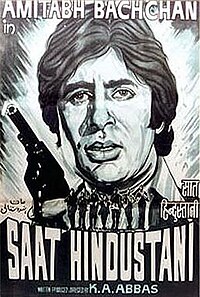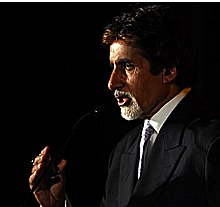
Its been too long, almost 3-4 months that we could watch a new movie here in India thanks to a spat between producers and distributors. The strike is over and here we have again movies to watch, movies to talk and movies to write :)
New York is the latest released hindi film directed by Kabir Khan and comes out from the Yash Raj production house starring John Abraham, Katrina Kaif, Neil Nitin Mukesh and Irrfan Khan. It was a highly anticipated movie not for its star-cast but for the draught of the movies and straightaway is being seen as the biggest hit of 2009 so far. The story is about the evil treatment of the muslims in America post 9/11 and deals with a complex political issue of getting back the respectful place for them in the american society. The whole plot of the movie is given here.
There are many things that is new in the movie. I think its the first time in Indian cinema that a theme is taken which concerns an international issue. Films with serious political issues are rare in India and that too an issue that, if not the world, concerns south Asia atleast, is still rarer. The other novel fact that I noticed is the place of Muslims in Indian films (esp terror-centred films) which was always given an ugly look and audiences have always condemned them. On the contrary, here we have muslims fighting to regain their pride and respect and the audience is applauding this; indeed a nice change that Kabir Khan brings for us. Like many other terror-terrorist films, we have a terrorist who "is not born a terrorist but circumsatnces have made him one" but this time it is not sympathy that is gained for that change of character but the film very clearly points out the mistake. FBI agent Roshan (Irrfan) admits the mistake on FBI's part for detaining all the innocent muslims post 9/11 as terror suspects and also points out the mistake on Sam's (Jhon Abraham) part in chosing the path of terrorism to take revenge; hopefully Indian cinema is, of late, coming out of its traditional stereotypes and changing ways towards a much positive future.
With these new things what else the movie also gives us as something new is Katrina Kaif. As an Indo-american she stuns me the most and undoubtedly its her best performance till date. Being originally an anglo-indian, this role suited her the most and she was too original for her hindi dialogues with english-accent. John Abraham is improving film by film and this movie will always be rated as one of his best. Neil Nitin Mukesh was good in his first film Johny Gaddar and has impoved a lot in this film and indeed is the show-stealer. I liked him in his first film and now I am his fan. I skipped 'Aa Dekhen Zara' (his second), but now I want to watch it too. No words for Irrfan, he is as usual at his best.
Kabir Khan as a director has done a fabulous job. After his first film 'Kabul Express' being more of a travelogue, I didn't expect much from him but he has really done a great job. Music is good and songs are only there where they are needed. Cinematography is brilliant and captures different mood of the movie very aptly wih the camera.
Of course, there are some negatives also about the film. There were part of movies where there was emotion well in excess of what was required. One such scene was when Omar (Neil) comes to know that Maya (Katrina) loves Sam (John). Omar's reaction looked a lot expressive and could have been better if his emotions were kept somewhat concealed. The climax of the film is also not upto the mark and could have been better (again emotions spoiled it).
All in all, after a long time, something comes out from Yash Raj films that is watchable and even more than that. A good movie, watchable+, 3 stars out of 5!!!


